Research activities of the Centre in large involve student participation at various motivational grant programmes as well as organisation of informal seminars and workshops. Students are encouraged to participate at international conferences and to get involved in solving research grants. Students and researchers of the Centre were involved in the following activities in 2019:
Participation at the BHI Colloquium held at Harvard University, Cambridge, USA in December 2019

The Black Hole Initiative (BHI) at Harvard University, the first worldwide interdisciplinary center to focus on the study of black holes, hosts weekly colloquia. In December 2019 the BHI Colloquium featured presentations by Debora Lančová, Bhupendra Mishra and Marek Abramowicz.
Video of the talks is available here.
Our Contributions:
The CNOC conference is held once every two years in Italy. CNOC XI was hosted by the Department of Physics and Astronomy of the University of Florence, on the Arcetri hill, in Florence. The congress focused on astrophysics of compact objects. It provided an opportunity for meeting and exchange of ideas among the participants, thus maintaining contacts (and creating new ones) among the members of the community. Ample space was given to young researchers, allowing them to present the most interesting contributions, both observational and theoretical.
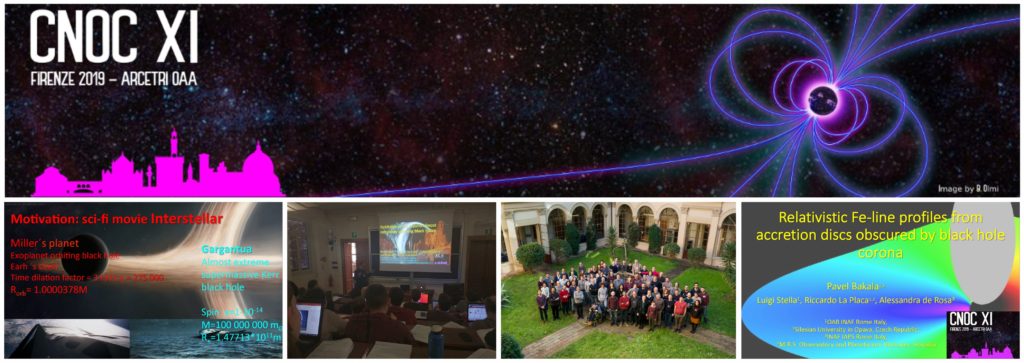
The main topics were pulsars, magnetars, neutron stars, ultraluminous X-ray sources, black holes in X-ray binaries, white dwarfs and cataclysmic variables, relativistic astrophysics and multi-messenger astronomy, gravitational waves and new multi-wavelength instruments for compact object astrophysics.
Our Contributions
Every second year, the Committee on Space Research (COSPAR) calls for a Scientific Assembly. In years between Scientific Assemblies COSPAR holds a symposium. Symposia are smaller meetings than the general assemblies, gather a few hundred participants, and are more focused on specific topics. In November 2019, Andrea Kotrlová participated at the 4th COSPAR Symposium focused on Small Satellites for Sustainable Science and Development which took place in Herzliya, Israel.
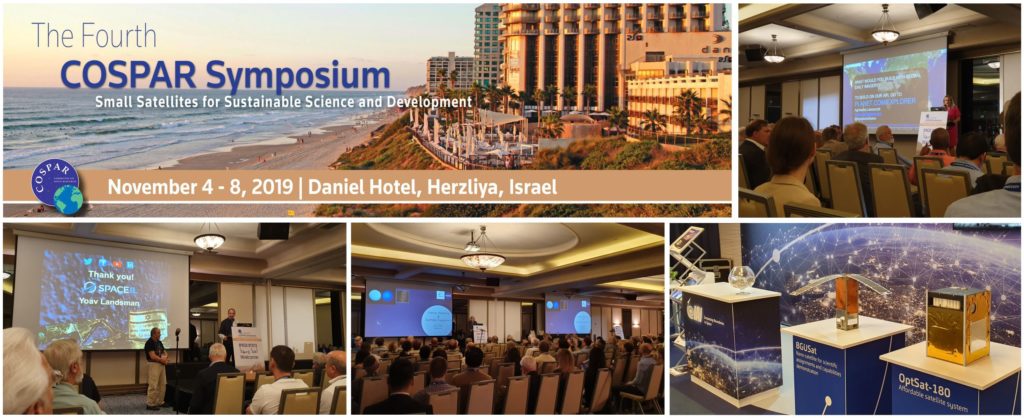
The symposium held sessions dedicated to scientific Earth observation missions with single or multiple small satellites, micro and nano satellites for Earth environmental monitoring, analysis of remote sensing image data (soil, ground water, seas, oceans, atmosphere, ionosphere, magnetosphere), cubesat exploration of the solar system objects (planets, asteroids, interplanetary space), extrasolar planets and the interstellar medium, the Milky Way and intergalactic space, space weather research, new astrophysical challenge with nano and micro satellites, satellite and nanosatellite technology, communication aspects and on-board data processing.

Among the invited keynote speakers at the symposium was also Doctor Mario Livio, an internationally known astrophysicist, best-selling author, and a popular lecturer. He gave an interesting talk about our place in the Cosmos.
Participation at the Future of X-ray Timing conference held in Amsterdam, Netherlands in October 2019
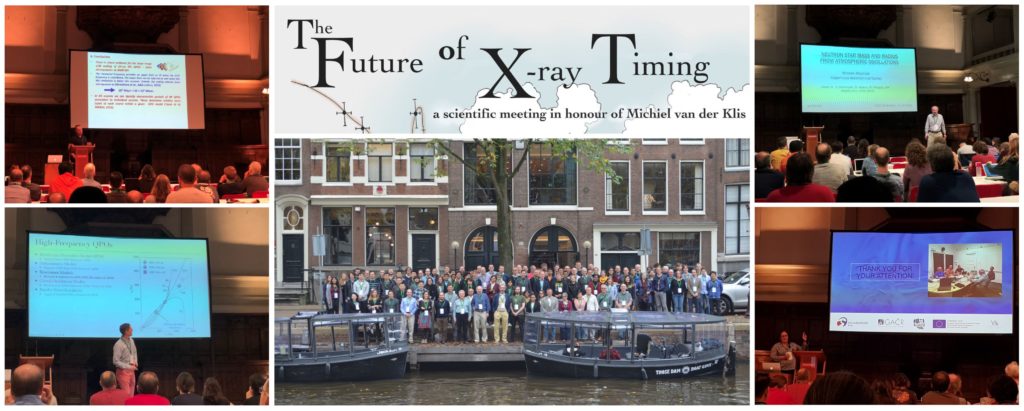
The conference was organised on the occasion of the retirement of Prof. Michiel van der Klis, a world-known astronomer from the University of Amsterdam, who has devoted his professional career to X-ray timing studies of compact objects. Many top leading experts in the field of X-ray timing and the physics of black holes and neutron stars have had the opportunity to present their work at this meeting, such as Anna Wats, Deepto Chakrabarty, Adam Ingram, Diego Altamirano, or Chris Fragile. Among the scientific themes of the conference were X-ray pulsations, X-ray bursts and burst oscillations, QPOs and their origin, accretion-driven variability (from observations to GRMHD simulations), multi-wavelength variability, and new X-ray timing missions.
Our Contributions
Talks
Posters
Participation at the IAU Symposium 356: Nuclear Activity in Galaxies Across Cosmic Time held in Addis Ababa, Ethiopia in October 2019
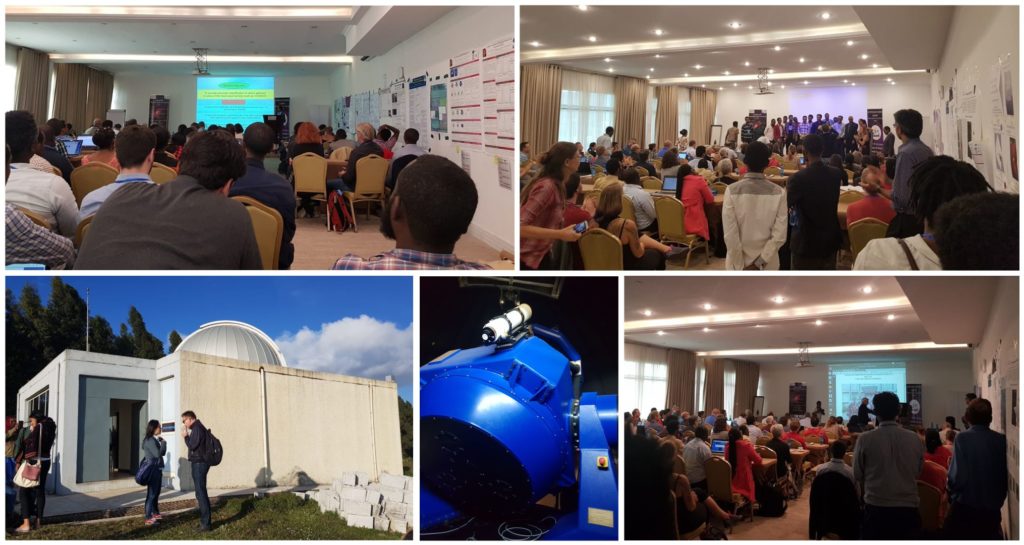
The aim of the conference was to improve our understanding of nuclear activity in galaxies, in particular to clarify the role of nuclear activity in the broader context of galaxy evolution and to outline major unsolved problems and observational and theoretical strategies for solving them. An important objective of the meeting was to strengthen the development of science in Ethiopia and Africa and open new space for collaborations between Africa and other parts of the globe. Our team presented at the meeting the results of our recently published research work within a poster presentation.
Our Contributions
Posters
The scientific focus of the workshop was traditionally devoted mainly to problems of relativistic physics of black holes and neutron or quark stars. Large attention was given to confronting theoretical models with up-to-date observations available through both electromagnetic and gravitational wave window to the Universe. Special attention was given to the modelling of astrophysical effects in the combined strong gravity and relevant external magnetic fields.
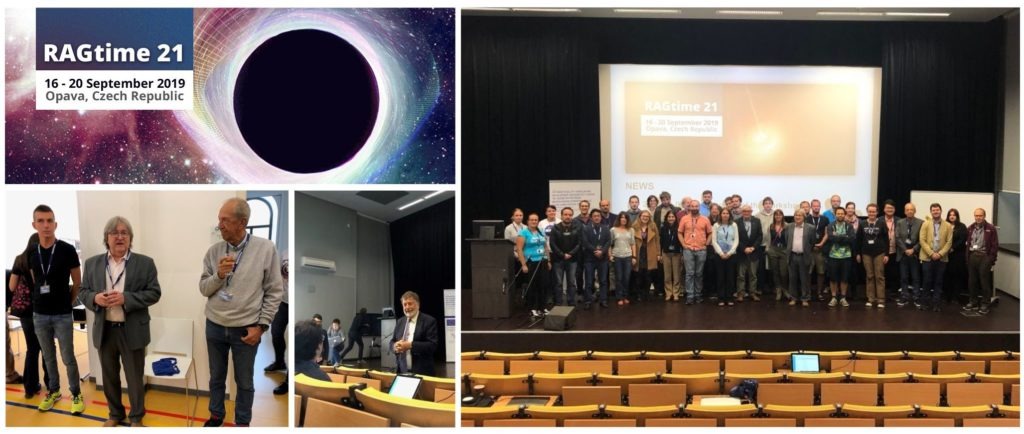
Our Contributions
Talks
Posters
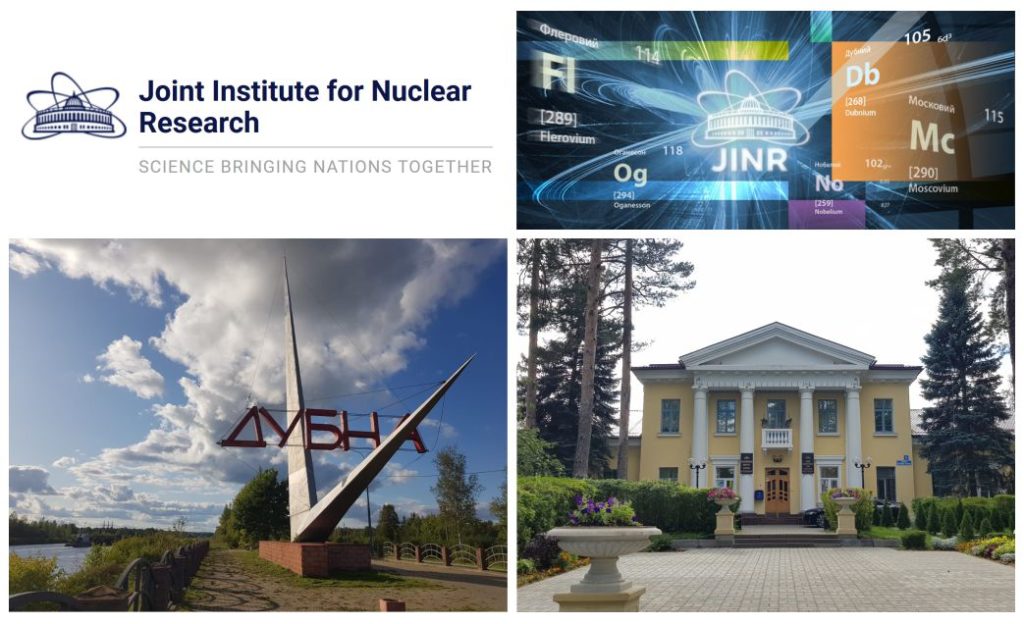
The main objective of the work visit of our colleague Eva Šrámková at the Joint Institute for Nuclear Research (JINR) in Dubna in August, 2019 was to discuss the possibility of scientific collaboration in the area of particle physics and its overlap with astrophysics, and furthermore the preparation of common project proposals for international competitions.
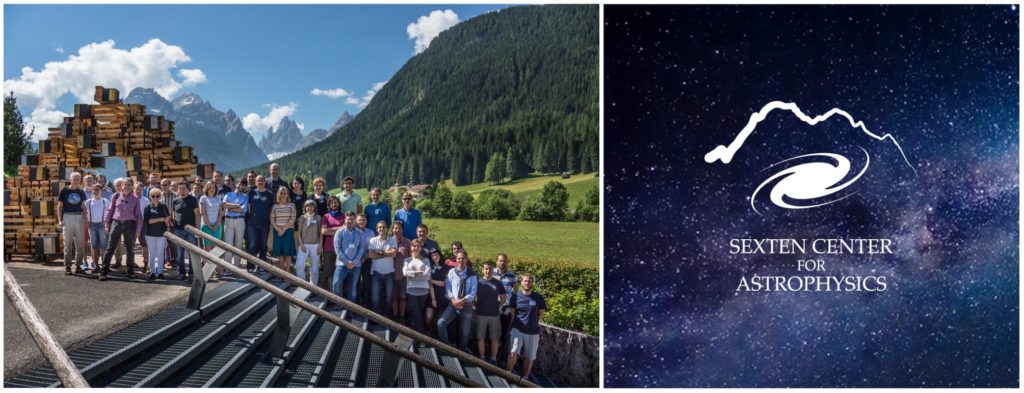
The aim of the workshop was to bring together a group of astrophysicists working – both theoretically and observationally – in the field of strong gravity around black holes. The main goals of the workshop were to set the state of the art by means of reviews given by the leading experts in the field, to inform on the progresses made by participants on specific subtopics, having extensive and profitable discussions, working together to make further progresses or finalize projects and establishing new collaborations.
Our Contributions
Talks
Participation at the BHI Conference 2019 held at Harvard University, Cambridge, USA in May 2019
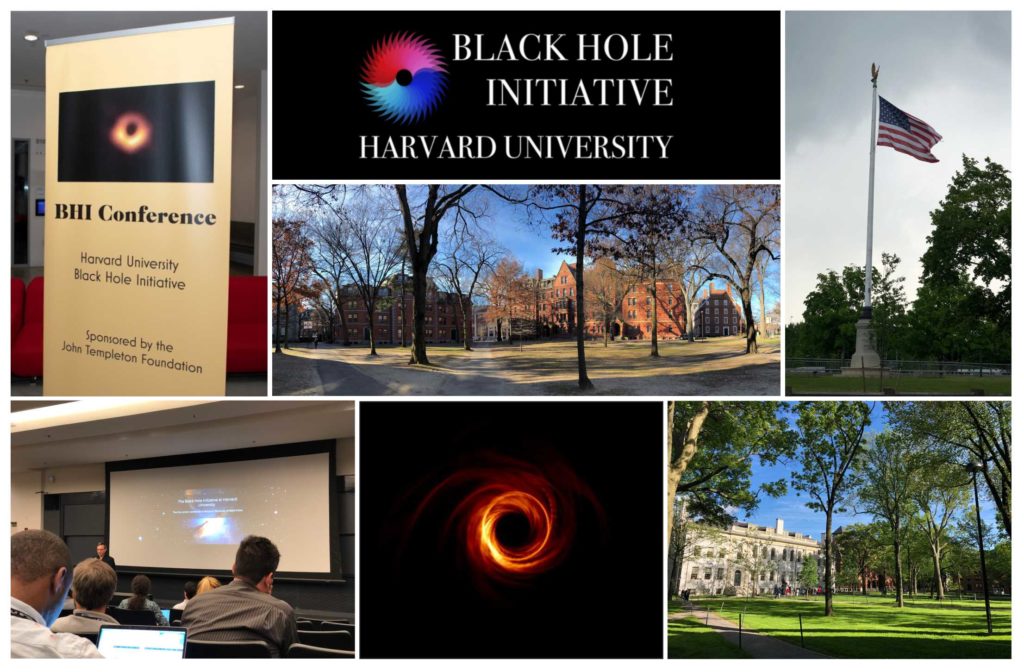
The Black Hole Initiative (BHI) is the first center worldwide to focus on the study of black holes. It is an interdisciplinary center at Harvard University involving a collaboration between principal investigators from the fields of Astronomy, Physics, Mathematics and Philosophy. In May 2019 our colleague Debora Lančová participated at the Third Annual Black Hole Initiative Conference.
Videos of all of the talks of the BHI Conference 2019 are available here.
During our workshop in Prague in May 2019 Andrea Kotrlová, Eva Šrámková and Debora Lančová had a unique opportunity to attend lectures given by famous American physicist Kip S. Thorne.
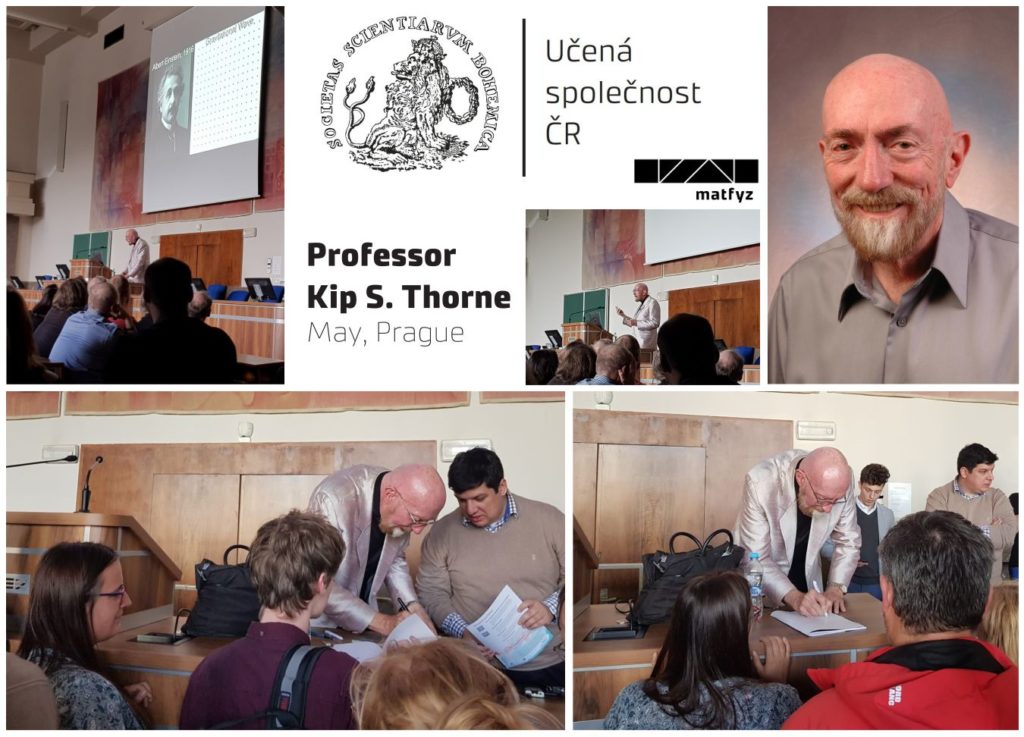
Kip S. Thorne is the Feynman professor emeritus at the California Institute of Technology, the world’s leading expert on Einstein’s general theory of relativity and its astrophysical implications, the Nobel laureate – with Rainer Weiss and Barry Barish – in 2017 for “decisive contributions to the LIGO detector and the observation of gravitational waves” and the executive producer of the film Interstellar. He visited Prague in May 2019 at the invitation of the Learned Society of the Czech Republic and the Faculty of Mathematics and Physics, Charles University.
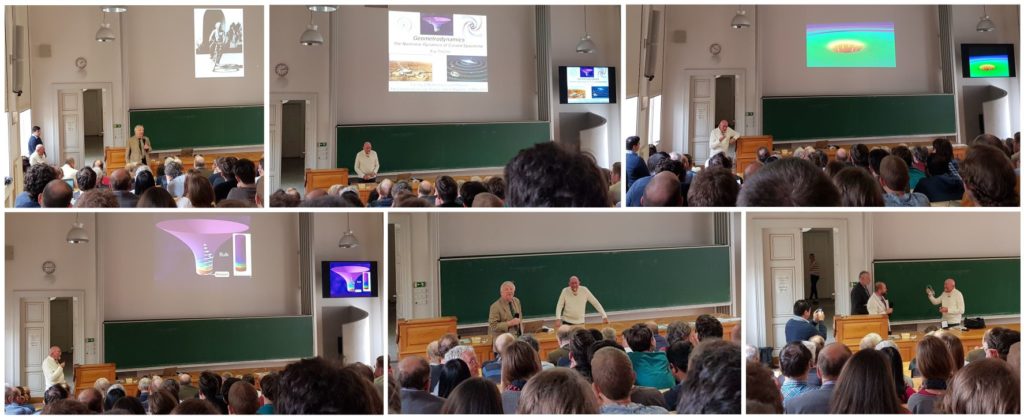
Professor Thorne gave three lectures during his Prague stay. The first one was the “Bolzano lecture” titled “Creating Gravitational-Wave Astronomy” for the Learned Society on May 15, 2019 in the Blue Auditorium of the Carolinum. The second lecture titled “Geometrodynamics: The Nonlinear Dynamics of Curved Spacetime”, a more technical talk, followed by a discussion, was held on May 16, 2019 in the lecture hall of the Faculty of Mathematics and Physics, Charles University. The last one, on May 17 was a general public lecture titled “The Warped Side of the Universe: from the Big Bang to Black Holes and Gravitational Waves” held in the main lecture hall of the Faculty of Law, Charles University.
Videos of all the three lectures given by Professor Thorne are available here.
Participation at the PHAROS Conference 2019 held near Barcelona, Spain in April 2019
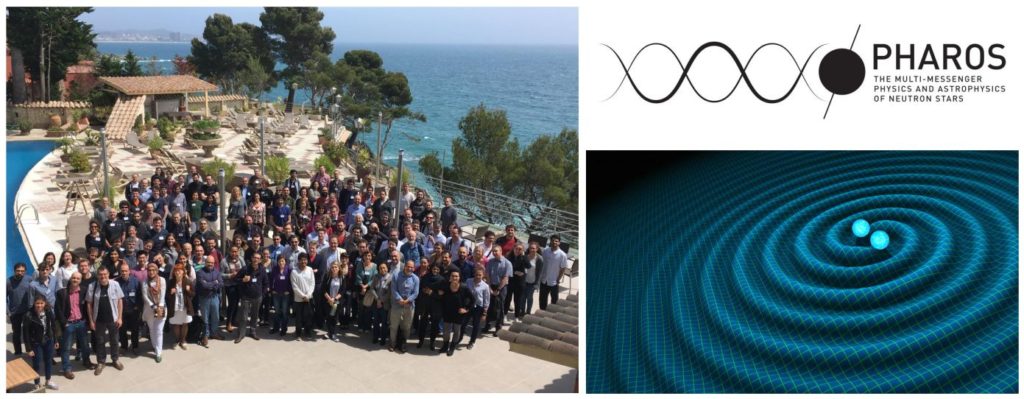
Gabriela Urbancová and Martin Urbanec participated at the PHAROS Conference 2019: The multi-messenger physics and astrophysics of neutron stars. It was the first big conference organized within the PHAROS project, funded by COST. Aim of this conference was to merge interdisciplinary expertise within the astrophysics, nuclear and gravitational physics community, to create an interactive background to study neutron stars in all their most diverse aspects.
Participation at the 12th INTEGRAL Conference held in Geneva, Switzerland in February 2019

The conference was devoted to recent developments in high energy astronomy with special emphasis on its role in multi-messenger astronomy. One of the goals was to review the status and development of future instruments and discuss perspectives in observational gamma-ray astronomy.
Our Contributions
Talks
Posters
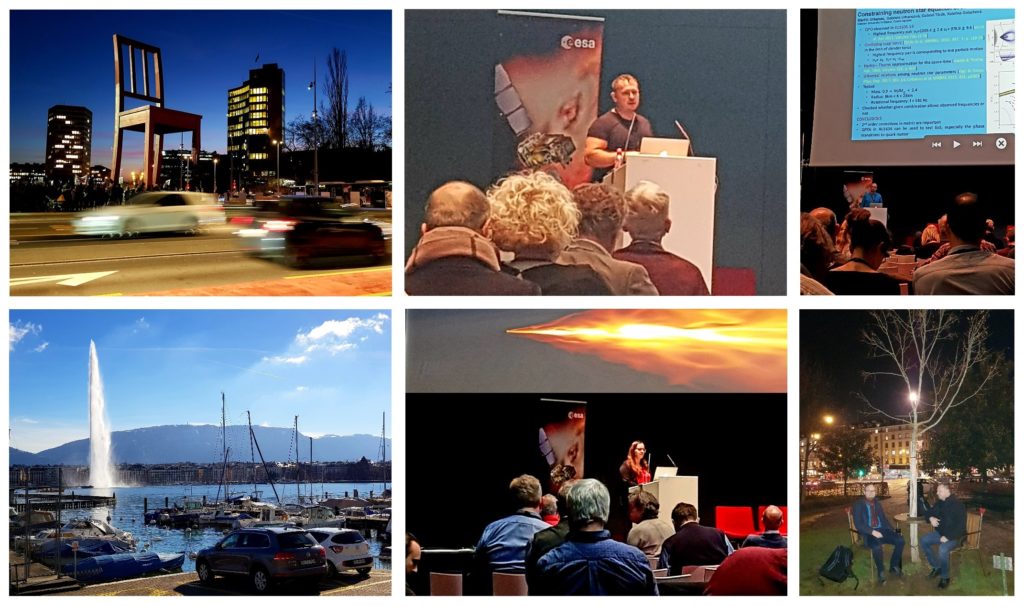
The scientific focus of the conference was accretion disc physics, in particular studying accretion processes that occur in strong and non linear gravity. The main topics discussed and reviewed were accretion discs within the concept of general relativity – their basic equations and structure, and different applications. Attention was paid to evolution of supermassive black holes, GRMHD simulations, relativistic viscosity and turbulence, and other related subjects.
Our Contributions
Talks
In January 2019 our colleagues Pavel Bakala and Zuzana Turoňová were on a work and study visit at the International Space Science Institute in Beijing (ISSI-BJ). During their stay they participated at the ISSI-BJ Forum on Discover the Sky by Longest Wavelength with Small Satellite Constellation held at ISSI-BJ. About 30 leading scientists from 10 countries participated in this forum. During the forum, the participants discussed various science problems related to the low frequency radio observation, such as the signature of cosmic dark age and dawn, the solar system, galactic and extragalactic sources, the propagation effects, and data analysis methods.
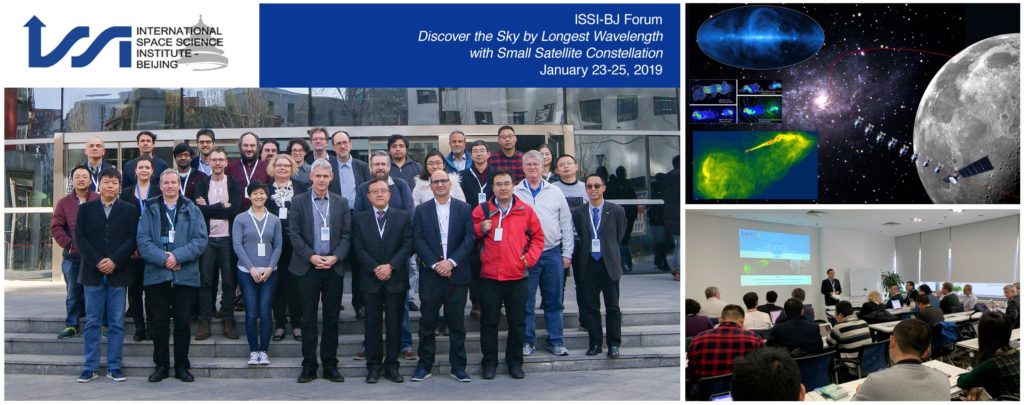
ISSI-BJ is a non-profit research institute. The main mission of ISSI-BJ is to contribute to the achievement of a deeper scientific and technological understanding of future space missions as well as of the scientific results from current and past missions through multidisciplinary research. ISSI-BJ is a close cooperation partner of ISSI in Bern, Switzerland.